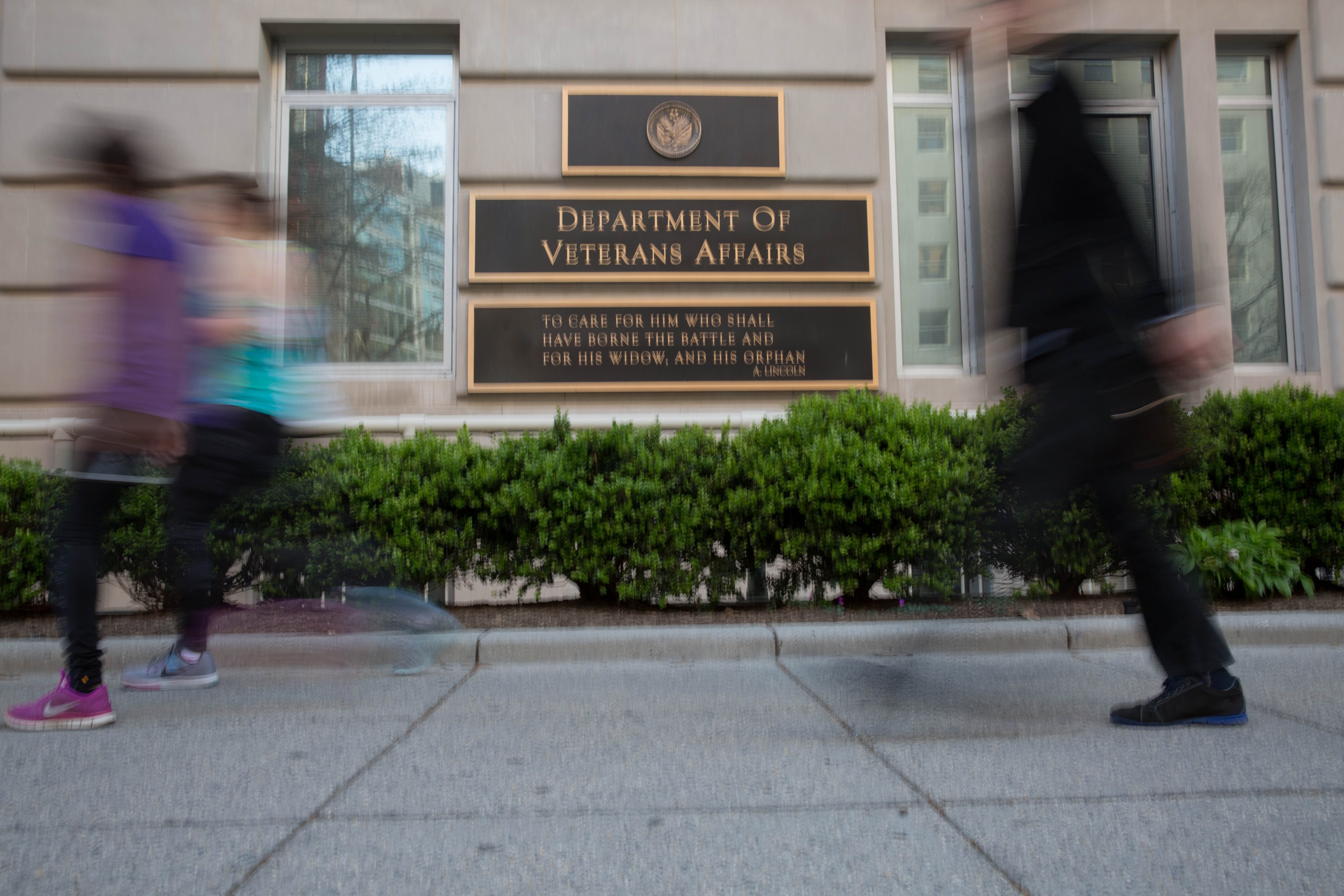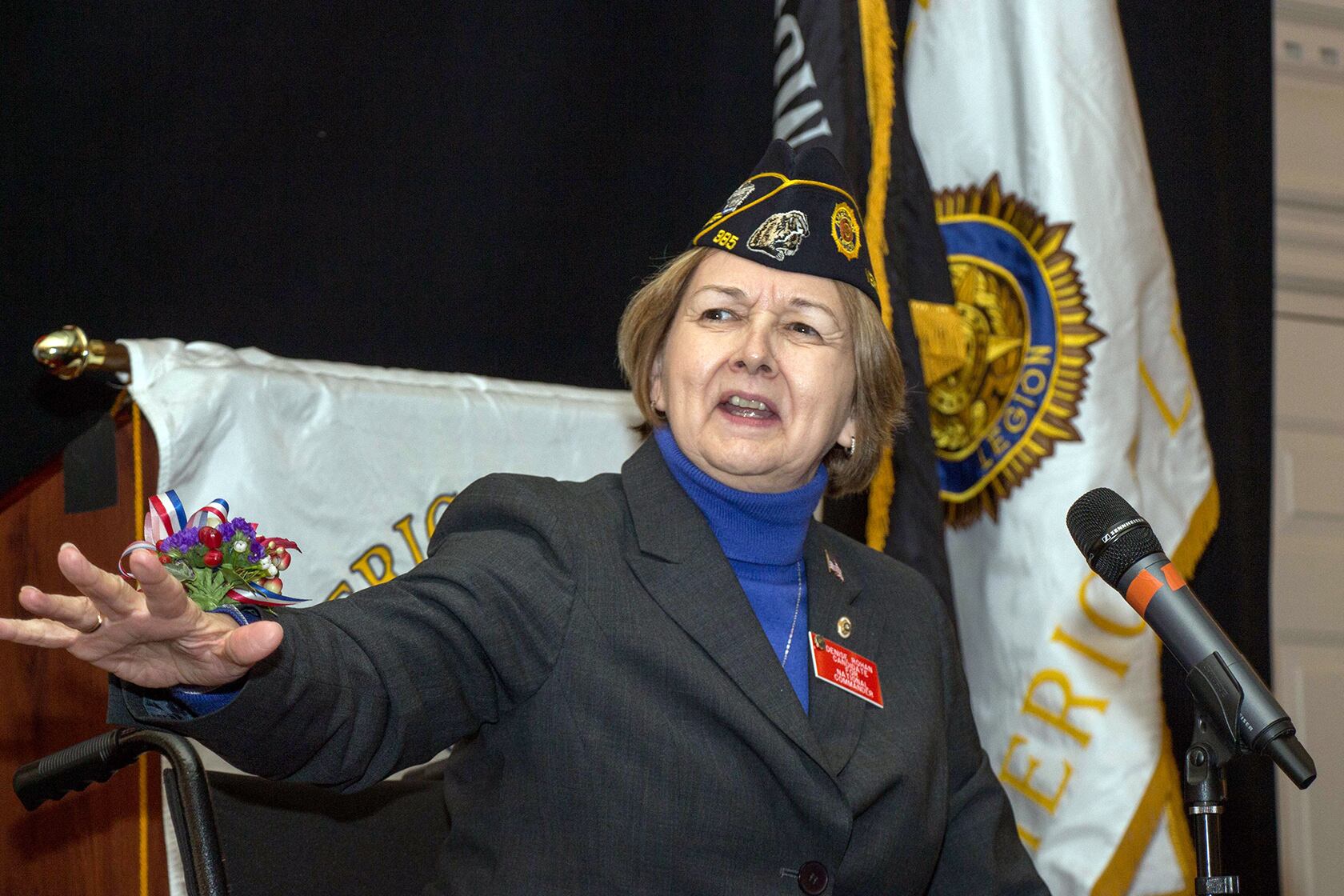WASHINGTON — This week, for the first time ever, two women are testifying before Congress as the top officials at major veterans organizations, helping to set the national agenda on a host of care and program issues.
That’s a big deal to many in the veterans community, but not to the two commanders.
Both women — Disabled American Veteran National Commander Delphine Metcalf-Foster and American Legion National Commander Denise Rohan — said they see historic significance in their roles, but also emphasized their gender really hasn’t meant many differences than past leaders’ work on veterans issues.
“A lot of folks would think the older veterans wouldn’t be as accepting of it,” said Rohan, an Army veteran who has been active in the Legion for 32 years. “But I have not found anyone concerned. I did my time, they see I did my time.”
Metcalf-Foster said in her congressional testimony on Tuesday that she was “the first, but I’m confident not the last, woman commander of DAV.” She is an Army Reserve veteran and the daughter of a 10th Cavalry Regiment “Buffalo soldier,” and said that background is what catches her membership’s attention, not the fact that she is a woman.
“It hasn’t really mattered,” she said. “Being a first sergeant in the military, where most of my company were males, it’s just like another team. And DAV is that way.”
RELATED

Women veterans advocates have long lamented the lack of public awareness of their presence in the military and civilian community. About 11 percent of the national veterans population is women, a figure that’s expected to grow to nearly 18 percent by 2040.
Army vet Mary Stout served as commander of Vietnam Veterans of America from 1987 to 1991, but none followed over the next 25 years. But in recent years, women have made inroads in a handful of prominent, traditionally male roles within other veterans organizations.
Three years ago, the American Legion named Army veteran Verna Jones the first female executive director in the organization’s century of operations. In 2017, officials at Iraq and Afghanistan Veterans of America promoted Army veteran Allison Jaslow to the same post.

Army veteran Marsha Four has served as vice president of Vietnam Veterans of America since 2013. Several other women are in the leadership chain of command for other veterans service organizations.
Metcalf-Foster has made expanding women’s health care and support programs one of the key focuses of her time in office. Rohan has focused on a host of family support issues. But both have also been vocal advocates on broader health care reforms, increased VA funding and better benefits delivery.
Rohan said one small difference she has seen is that her election has opened the door for more conversations about other women veterans.
“When I meet the World War II veterans and Korean War veterans, they are so proud,” she said. “And what they want to do is tell me about their daughters’ and their granddaughters’ accomplishments.”
On Tuesday, before Metcalf-Foster’s testimony before lawmakers, Senate Veterans Affairs’ Committee Chairman Johnny Isakson, R-Ga., joked that her election to the top DAV post resulted in “the first time I ever kissed a national commander.”
But aside from that the only mention of her historic status were a few congratulations from lawmakers amid standard policy and procedural questions. Metcalf-Foster said she was happy to keep it to the important work at hand.
“We work together,” she said. “We don’t look at gender. We don’t look at anything like that.”
Leo covers Congress, Veterans Affairs and the White House for Military Times. He has covered Washington, D.C. since 2004, focusing on military personnel and veterans policies. His work has earned numerous honors, including a 2009 Polk award, a 2010 National Headliner Award, the IAVA Leadership in Journalism award and the VFW News Media award.





